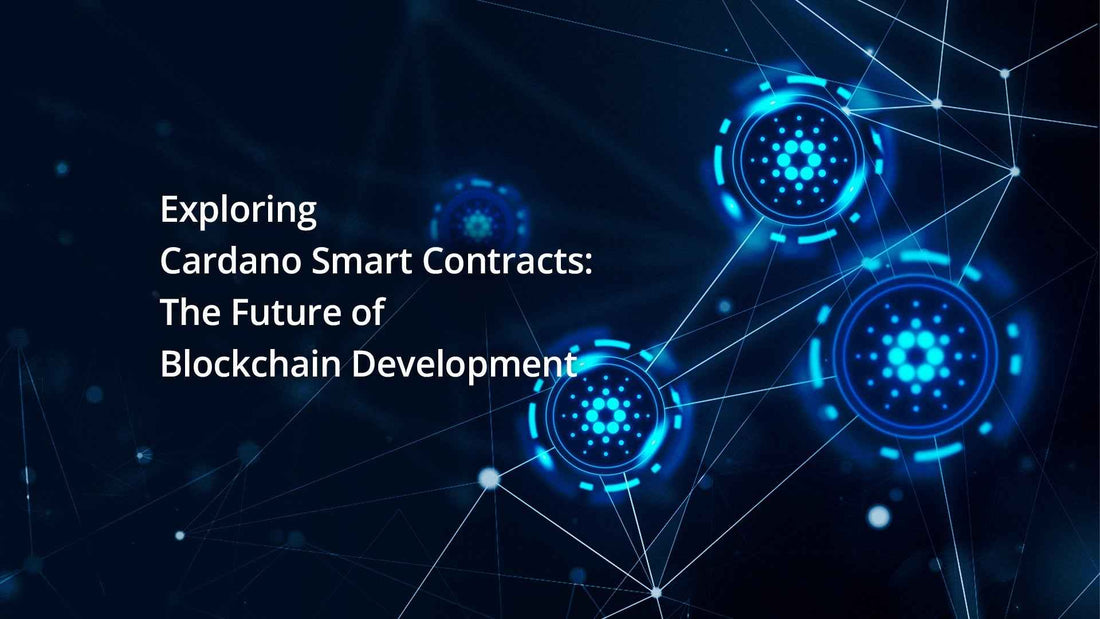
Exploring Cardano Smart Contracts: The Future of Blockchain Development
Cardano, a third-generation blockchain platform, has been steadily gaining traction in the cryptocurrency and blockchain space. Known for its scientific approach and peer-reviewed research, Cardano is designed to be a more secure, scalable, and sustainable blockchain network. One of the most exciting features of Cardano is its ability to support smart contracts. In this blog post, we will delve into what Cardano smart contracts are, their advantages, and how they are shaping the future of blockchain development.
What Are Cardano Smart Contracts?
Smart contracts are self-executing contracts where the terms of the agreement are directly written into lines of code. These contracts automatically execute and enforce the terms of the agreement without the need for intermediaries. On the Cardano blockchain, smart contracts are powered by a layer called Plutus, which allows developers to write and deploy complex decentralized applications (dApps).
Key Features of Cardano Smart Contracts
- Security and Reliability: Cardano's rigorous approach to security, based on peer-reviewed research and formal verification methods, ensures that smart contracts are robust and less prone to bugs and vulnerabilities.
- Scalability: Cardano's unique architecture, featuring a settlement layer and a computation layer, allows for enhanced scalability. This means that as more users and transactions are added to the network, it can handle the load efficiently.
- Sustainability: Cardano's proof-of-stake (PoS) consensus mechanism, Ouroboros, is designed to be energy-efficient, making it more sustainable compared to proof-of-work (PoW) blockchains.
- Interoperability: Cardano aims to enable interoperability with other blockchains and legacy systems, fostering a more interconnected and inclusive blockchain ecosystem.
Advantages of Cardano Smart Contracts
- Reduced Costs: By eliminating the need for intermediaries, Cardano smart contracts can significantly reduce transaction and operational costs.
- Increased Efficiency: Smart contracts execute automatically when predefined conditions are met, ensuring faster and more efficient transactions.
- Enhanced Transparency: The terms of the smart contract are visible and verifiable on the blockchain, promoting transparency and trust among parties.
- Customizable and Programmable: Developers can create highly customized and programmable contracts to suit various use cases, from financial services to supply chain management.
How to Develop Smart Contracts on Cardano
Getting Started with Plutus
Plutus is the smart contract development platform for Cardano. It comprises Plutus Core, the on-chain code executed by the Cardano blockchain, and Plutus Playground, an interactive environment for writing and testing smart contracts.
Steps to Develop a Smart Contract on Cardano:
- Set Up Your Development Environment: Install the necessary tools, including the Haskell programming language, as Plutus is based on Haskell.
- Write Your Smart Contract: Use Plutus to write the smart contract. This involves defining the contract logic and conditions for execution.
- Test Your Contract: Use Plutus Playground to simulate and test your smart contract in a controlled environment.
- Deploy Your Contract: Once tested, deploy your smart contract to the Cardano blockchain.
Example Use Cases for Cardano Smart Contracts
- Decentralized Finance (DeFi): Cardano smart contracts can power various DeFi applications, such as lending platforms, decentralized exchanges, and stablecoins.
- Supply Chain Management: Smart contracts can automate and streamline supply chain processes, ensuring transparency and efficiency from production to delivery.
- Identity Verification: Cardano can facilitate secure and decentralized identity verification systems, reducing fraud and enhancing privacy.
- Voting Systems: Implementing smart contracts in voting systems can ensure tamper-proof and transparent elections.
Conclusion
Cardano smart contracts represent a significant advancement in the blockchain space, offering enhanced security, scalability, and sustainability. As the Cardano ecosystem continues to grow, we can expect to see an increasing number of innovative applications and solutions built on its platform. Whether you are a developer looking to create dApps or a business exploring blockchain solutions, Cardano smart contracts provide a robust and flexible foundation for the future of decentralized technology.
Stay tuned for more updates and tutorials on Cardano smart contracts and other blockchain technologies. If you have any questions or would like to share your experiences, feel free to leave a comment below.
